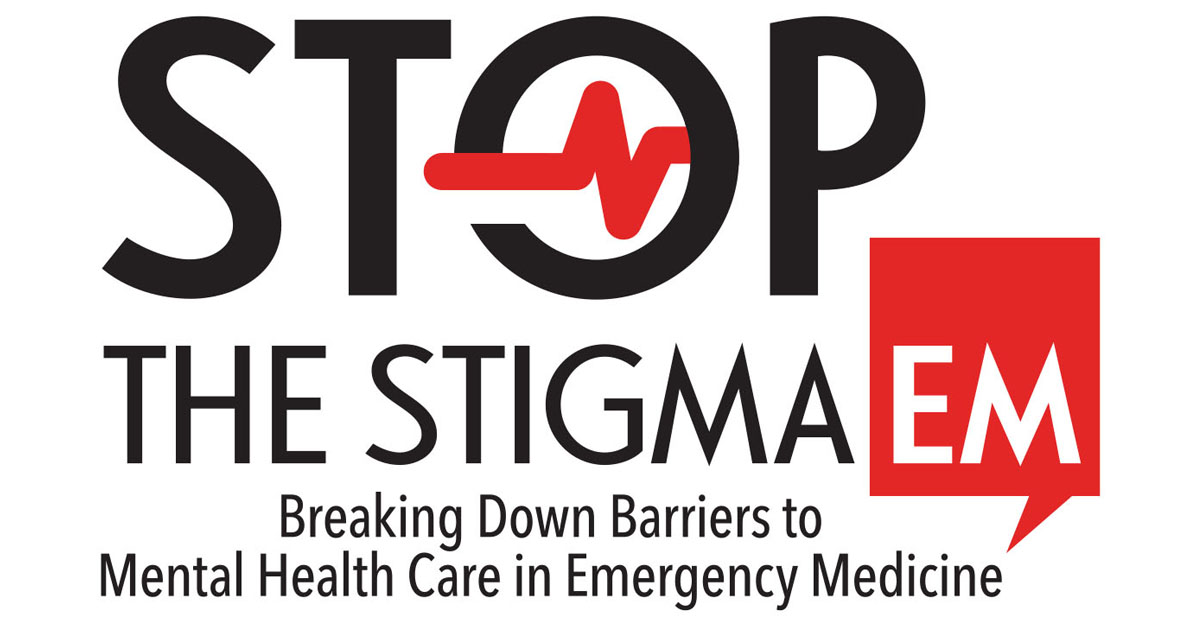
Stop the Stigma EM Toolkit
October Is #StopTheStigmaEM Month!
In emergency medicine (EM), the mental health of physicians is often overlooked, despite the high-pressure and unpredictable nature of their work. Traditionally reactive, mental health care must evolve towards proactive support, acknowledging that mental well-being is essential for both individual and organizational success. Addressing challenges such as the imposter phenomenon and reducing stigma are crucial steps in this transformation. By fostering an organizational culture where mental health care is integral, emergency departments can enhance job satisfaction, reduce burnout, and improve patient outcomes.
During Stop the Stigma EM Month, we call on the EM community to embed mental health support as a core component of our organizational culture. Together, we can break the stigma and build stronger, more resilient teams.
EM Mental Health Collaborative
Thank you to our sponsors and supporters whose coordinated efforts are behind the Stop the Stigma EM Month campaign, stimulating education, awareness, advocacy, and policy action related to breaking down barriers to mental health care in emergency medicine.
Support & Resources at Your Fingertips
Everyone has a role to play in breaking down the barriers to mental health care in emergency medicine. Check out these helpful resources to help individuals, leaders, and institutions make a difference.
Resources
Check out these links to download ready-to-use materials to support the Stop the Stigma EM month effort. Use them freely, distribute them broadly, and post them frequently! Download graphics including an email signature banner and Zoom background to help spread the word and stop the stigma.
Stop the Stigma EM Month Logos and Graphics
These Badge Buddy Tags are designed to assist emergency medicine (EM) residents and students in critical moments. Each tag features a scannable QR code that provides immediate access to essential defusing tools and grounding techniques. These tags offer a reassuring reminder that you are not alone, fostering community and solidarity within the field. During Stop the Stigma EM Month, we encourage you to print, distribute to your colleagues, and wear these tags to enhance mental health awareness and support. They're a simple yet effective way to stay connected and supported in challenging times.
Badge Buddy Tags
This resource flyer is a vital tool for managing stress and navigating challenging situations. Equipped with a scannable QR code, it connects you to crucial defusing resources and grounding techniques for quick access. The flyer also serves as a prominent reminder that support is always available. Print and place it in your work break room during Stop the Stigma EM Month to highlight the importance of mental health awareness and reinforce a supportive community environment.
Resource Flyer

